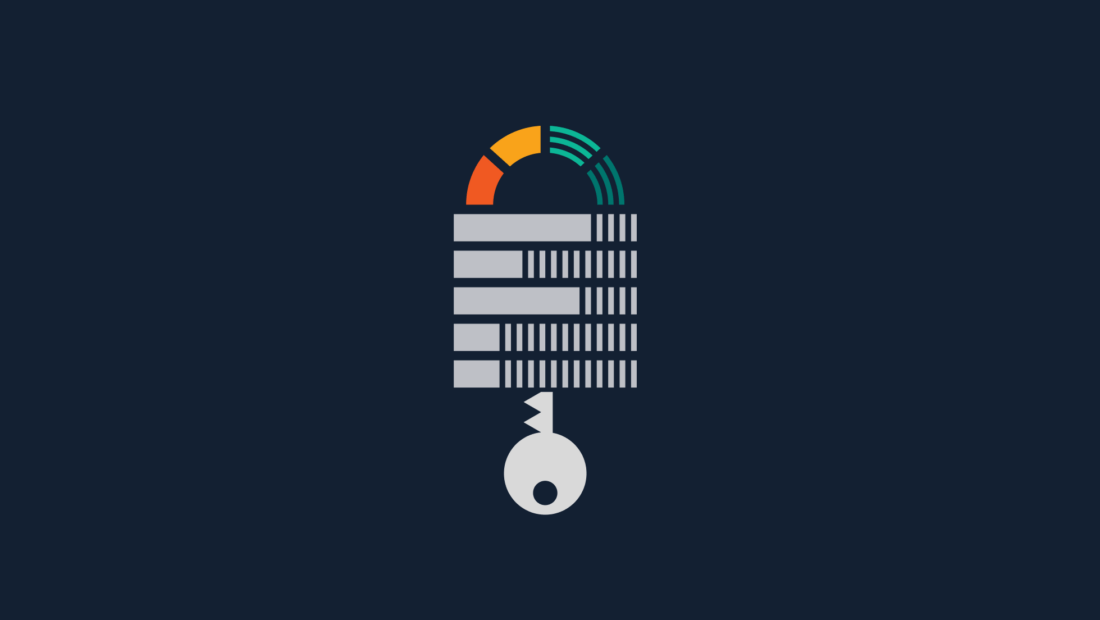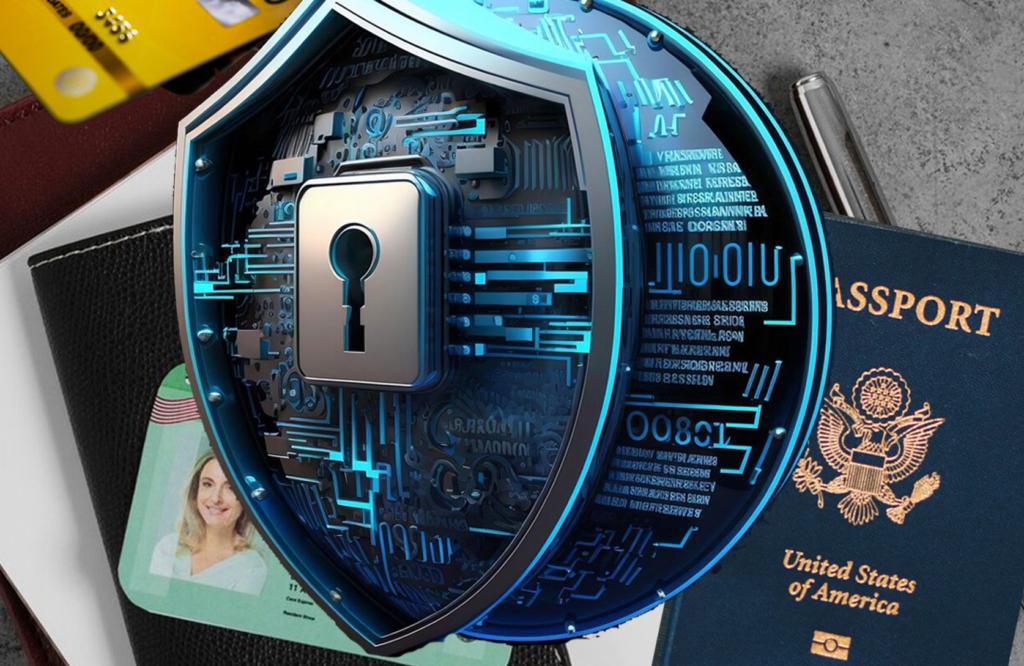Identity Guard Alternative Options—A Comprehensive Comparison

Start Building Your
Child’s Credit
Signing up for an identity protection service can help you protect yourself in this age of rampant data breaches and identity theft. While Identity Guard has remained the popular choice for decades, there are new emerging services that prove to be equally good or even better. With so many identity protection services in the market, it can be difficult to choose the best, as each offers attractive features to stand out from the competitors. In this comprehensive comparison, we’ll explore Identity Guard alternative options, diving deep into various identity protection services that offer a robust defense against the ever-present threats of identity theft and data breaches.
Identity Guard Pros and Cons
Identity Guard is an identity theft protection service that monitors your personal information and alerts you to potential threats. The available identity protection features include credit monitoring, dark web monitoring, Social Security number monitoring, financial account takeover protection, child identity monitoring, and data breach alerts. Identity Guard monitors billions of data points daily, notifying users of any changes that could indicate identity theft.
Here are the pros and cons of Identity Guard:
| Pros | Cons |
| Offers comprehensive monitoring of your personal information, including your credit, Social Security number, and public records | Unlike some competitors, Identity Guard doesn’t offer a free plan, which may deter budget-conscious individuals |
| Provides credit monitoring services, helping you stay informed about changes to your credit reports | It can be relatively expensive compared to some other identity protection services |
| Scans the dark web for your personal information, alerting you if it’s found in compromised databases | No fraud alerts with credit bureaus |
| Offers identity theft insurance coverage, including financial protection in case of identity theft | If you cancel your subscription before the end of the current term, you won’t be eligible for a refund of any unused time remaining on your plan |
| Has a solid reputation for its reliable services and customer support | The mobile app, while functional, may lack some features compared to the web-based dashboard |
| Provides timely alerts and notifications for suspicious activity for a proactive approach to identity protection | The lower-priced tiers don’t include access to your full credit reports or credit scores |
Identity Guard Pricing
Identity Guard offers different pricing tiers for individuals and families. The following table breaks down the plan categories:
| Identity Guard Plan | Individual | Family (Five Adults and Unlimited Children) |
| Value | $8.99/month | $14.99/month |
| Total | $19.99/month | $29.99/month |
| Ultra | $29.99/month | $39.99/month |
Why Consider Identity Guard Alternatives

While Identity Guard is a reliable choice for many, it may not be the perfect fit for everyone. Here are some reasons you might want to explore alternative options:
- Cost—Identity Guard’s Ultra Plan comes with the most benefits of all the plans, making it the ideal choice if you want peace of mind. However, you do pay a higher price for all those extra features. Looking at other options lets you find a more cost-effective service without compromising security
- Features—Different services offer varying features and benefits. You may find an alternative that provides extra perks that align better with your needs. The right alternative for you offers the specific tools to protect your identity
- User reviews—While Identity Guard has a good reputation overall, some alternatives have even stronger customer satisfaction ratings. Reading reviews can help you compare the important aspects of each option, such as customer service and ease of use
Top Identity Guard Alternatives

If you’re looking for an Identity Guard alternative to protect your privacy and secure your identity, here are a few popular options to consider:
- LifeLock
- IdentityForce
- ID Watchdog
- Privacy Guard
LifeLock
Founded in 2005, LifeLock quickly gained popularity for its simple yet effective identity protection plans. The company was transformed in 2017 when it was acquired by Symantec, the maker of Norton Antivirus. This acquisition enabled Norton to become a comprehensive provider of digital security and identity theft protection.
Combining Norton’s antivirus and cybersecurity expertise with LifeLock’s identity protection know-how created an all-in-one solution for consumers worried about online threats and identity theft. Like Identity Guard, LifeLock monitors your personal information across the web and notifies you of changes. It also provides identity theft insurance and restoration services if your identity is stolen. Here’s what might make Lifelock a viable Identity Guard alternative:
- Comprehensive identity theft protection with Norton 360 partnership
- Credit monitoring with alerts for any changes
- Stolen funds reimbursement and personal expense compensation—up to $25,000
- Identity restoration services
- Credit score tracking (in some plans)
Pros and Cons of LifeLock
While it has its strengths, LifeLock does come with some drawbacks too. Here’s a brief overview:
| Pros | Cons |
| • Strong brand reputation and reliability • Wide range of services and plan options • 24/7 customer support • Family plans available • Million-dollar protection package | • Can be more expensive than some competitors • Some features are only available in higher-tier plans • Dashboard performance is significantly slow |
LifeLock Pricing
LifeLock offers a diverse range of subscription options, with varying tiers and pricing structures tailored to individual and family needs. Here are its pricing plans:
| Plan | Monthly Cost (When Paid Annually) |
| Select | $18.99 |
| Advantage | $30.99 |
| Ultimate Plus | $40.99 |
These family plans offer extensive coverage as they include two adults and five children, but their cost gets over 60% higher after the first year, putting LifeLock among the pricier options for protecting your family’s information.
Comparing LifeLock vs. Identity Guard
LifeLock with Norton 360 provides a greater array of digital security features compared to Identity Guard. However, its pricing structure is more complex, which some users may find difficult to justify.
IdentityForce
Owned and operated by TransUnion, IdentityForce is a reliable solution for protecting personal information. As a company that provides identity protection services, it places a strong emphasis on actively monitoring and preventing identity theft. IdentityForce offers various features that make it a solid alternative to Identity Guard, including:
- Social media monitoring for signs of identity theft
- A 30-day trial period for its standard plans
- Advanced credit tracking and simulation tools
Pros and Cons of IdentityForce
Check out IdentityForce’s advantages and disadvantages:
| Pros | Cons |
| • The basic subscription tier includes a 30-day free trial period • Provides a good collection of self-help and educational resources • Up to $1 million insurance for identity recovery costs • Up to $1 million reimbursement for stolen funds in certain pricing tiers • Well-designed and easy-to-use interface • The mobile app also scans for malware and spyware on your smartphone | • Refunds won’t be issued if you cancel before your subscription period expires • Specific information about the service may be hard to find • When using the service in a web browser, there may be a delay when clicking on buttons • The lower-priced tier doesn’t provide access to credit reports or credit scoresIdentity • Force may not effectively handle intricate financial situations compared to other services |
IdentityForce Pricing
The user-friendly interface and competitive pricing of IdentityForce make it an appealing option for individuals and families who want to safeguard their identities and financial security. The two pricing tiers include:
- UltraSecure—$17.99 per month per member with various services, including advanced fraud monitoring, identity threat alerts, fully managed restoration, and more
- UltraSecure+Credit—$23.99 per month per member with additional features, including secure VPN and access to credit monitoring by all three credit bureaus
Comparing IdentityForce vs. Identity Guard
IdentityForce provides unique features, such as medical fraud detection, that set it apart from other Identity Guard alternatives. However, it’s worth noting that IdentityForce only provides access to your credit report every few months. This delay can give identity thieves an advantage, as they have more time to exploit your information and engage in fraudulent activities using your identity.
In terms of pricing, IdentityForce may be considered slightly expensive, considering the value it provides. It would be more favorable if the service had a lower cost or offered additional features.
ID Watchdog
Founded in 2005, ID Watchdog is a company that provides comprehensive identity theft protection and resolution services to individuals and businesses. Over the years, the company has grown to become a trusted brand known for its high-quality identity monitoring and assistance in recovering from identity theft.
ID Watchdog Pros and Cons
While it offers unique benefits, ID Watchdog also comes short in some areas. Here’s a brief summary of each:
| Pros | Cons |
| • Extensive monitoring for various types of identity theft • Excellent recovery assistance • Competitive pricing • User-friendly dashboard • Owned by Equifax, one of the leading consumer credit bureaus | • Low-rated mobile app • Credit score tracker only works for one credit bureau • Previous Equifax data breaches raise security concerns |
ID Watchdog Pricing
ID Watchdog offers two plans:
- Select—$12.50/month with the annual plan, which gives you access to dark web monitoring, basic and advanced identity monitoring, fraud alerts, and professionally managed ID theft resolution. However, you don’t get credit reports with this plan
- Premium—$18.33 per month when opting for the annual subscription. The plan offers all the benefits mentioned above plus a monthly Vantage credit score that derives data from all three major credit bureaus, along with the annual report from each of the bureaus
Comparing ID Watchdog vs. Identity Guard
Compared to ID Watchdog, Identity Guard offers more plan options to choose from according to your specific needs. However, ID Watchdog distinguishes itself with a focus on high-quality monitoring and offering ID recovery assistance for non-subscribers.
PrivacyGuard
PrivacyGuard has been around for over 30 years, starting from the early 90s. Its main goal is to help users protect their identity and financial security. PrivacyGuard offers a range of services, such as credit monitoring, scanning the dark web, identity theft insurance, lost wallet protection, and fraud alerts. The reasons you might choose PrivacyGuard over Identity Guard include:
- Highly customizable tiers, so you can choose the services that are most important to you
- Strong emphasis on credit monitoring
- Affordable pricing
PrivacyGuard Pros and Cons
When considering this identity protection service, here’s what to keep in mind:
| Pros | Cons |
| • Cost-effective pricing plans • Regular monitoring of credit reports and scores from all three major credit bureaus (Equifax, Experian, and TransUnion) to keep you informed about any changes • An easy-to-navigate online dashboard, ensuring that customers can access their accounts and information conveniently • More advanced plans provide up to $1 million in insurance coverage to protect against funds being stolen as a result of identity theft | • Family protection plans may have restrictions, and you may need to pay additional fees for each family member • May not offer as many additional perks or services as some competitors • No credit lock feature available—if you want to lock your credit reports, you’ll need to pay for a separate service |
PrivacyGuard Pricing
PrivacyGuard offers three simple and affordable pricing tiers:
| Plan | Price |
| PrivacyGuard Identity Protection | $9.99 per month |
| PrivacyGuard Credit Protection | $19.99 per month |
| PrivacyGuard Total Protection | $24.99 per month |
Comparing Identity Guard vs. PrivacyGuard
PrivacyGuard offers cost-effective pricing and strong credit monitoring, as well as the ability to personalize access to various tools and features. Meanwhile, Identity Guard provides a broader range of features and services, including comprehensive credit monitoring, dark web scanning, and identity theft insurance, catering to a more extensive set of identity protection needs.
Which Identity Protection Service Should You Choose?
Choosing the right identity protection service largely depends on your specific needs and priorities. Identity Guard provides robust protection, but it tends to be on the pricier side. Other services have their limitations, too—LifeLock’s basic plans don’t include free credit reports, whereas IdentityForce, although dependable, offers a limited range of plan options. Meanwhile, ID Watchdog may not prioritize fraud protection as much as you’d like, and PrivacyGuard doesn’t offer family plans or annual discounts.
In addition to costs, you should consider the level of protection and the range of features you require, as well as the service’s customer support quality and ease of use. If you’re searching for an affordable family service that prioritizes the protection of children’s identities and building their credit history—which most regular ID protection services lack—FreeKick is an excellent option.
Never Fall Victim to Identity Theft With FreeKick
With a child’s identity being stolen every 30 seconds, this crime is more common than you might think—and it’s important to take every precaution you can. That’s where FreeKick by Austin Capital Bank comes in—it’s a two-in-one platform that protects your family’s identities and helps build credit for your children.
How FreeKick Protects Identity
FreeKick offers multiple identity protection features for both adults and minors. For you and your adult children, FreeKick offers the following services:
- Credit profile monitoring
- SSN monitoring
- Dark web monitoring for personal information
- Up to $1 million identity theft insurance
- Full-service white-glove concierge credit restoration
- Lost wallet protection
- Court records monitoring
- Change of address monitoring
- Non-credit (Payday) loan monitoring
- Free FICO® Score monthly
- FICO® Score factors
- Experian credit report monthly
For minor children, FreeKick offers:
- Credit profile monitoring
- Social Security number (SSN) monitoring
- Dark web monitoring for children’s personal information
- Up to $1 million identity theft insurance
- Full-service white-glove concierge credit restoration
- Sex offender monitoring—based on sponsor parent’s address
How FreeKick Builds Credit
Once you’ve secured your family’s identities, it’s time to think about their financial future.
With FreeKick’s credit building service, which is available for children aged 13 to 25, you can give your child up to five years of credit history once they turn 18. This will help them save $200,000 during their lifetimes by giving them access to more favorable loan terms and other financial perks.
You have to take three steps:
- Create an Account—Go to FreeKick.bank, sign up for an account, and choose a deposit amount you’re comfortable with
- Set It and Forget It—FreeKick will automatically start building 12 months’ worth of credit history for your children
- Keep Growing—After 12 months, you can close the account without any fees or continue building credit for your family for another year
FreeKick Pricing
FreeKick offers flexible pricing. There are two plans you can choose from:
| FDIC-Insured Deposit | Annual Fee |
| $3,000 | $0 (Free) |
| No deposit | $149 |
Each plan offers:
- Credit building for six children aged 13 to 25
- Identity protection for two parents and six children aged 0 to 25
Protect your family from identity theft and financial hardship—sign up for FreeKick today.